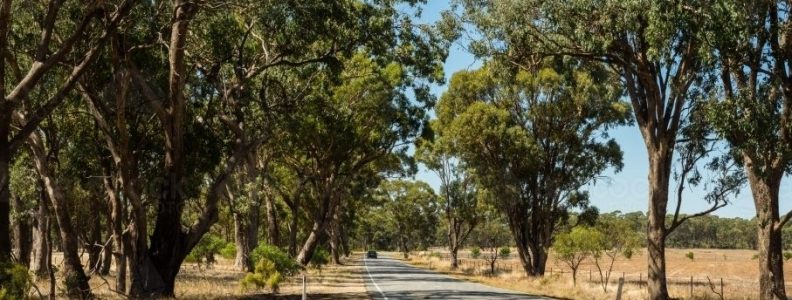 WorkSafe VIC has charged a company director for driving a ute with a teenage apprentice in a toolbox. The incident occurred in February 2022, when a 19-year-old apprentice was told to lie down inside the toolbox, which was mounted on the back of the ute, before the vehicle was driven from Tolmie to Mansfield in Victoria. Continue reading
WorkSafe VIC has charged a company director for driving a ute with a teenage apprentice in a toolbox. The incident occurred in February 2022, when a 19-year-old apprentice was told to lie down inside the toolbox, which was mounted on the back of the ute, before the vehicle was driven from Tolmie to Mansfield in Victoria. Continue reading
Safety News February 2024
February 2024
Issue 46
 Baby Boomers to Gen Z: Are we seeing a shift in safety attitude?
Baby Boomers to Gen Z: Are we seeing a shift in safety attitude?
Sadly, workers over the age of 45 account for almost two thirds of workplace fatalities in 2022. Younger workers aged under 25 had the lowest fatality rate. Is this a cultural shift in safety attitudes of young workers vs ‘Baby Boomers’ and ‘Gen X’ workers?
 What are the WHS implications of the “right to disconnect”
What are the WHS implications of the “right to disconnect”
Workers will be able to refuse to monitor, read or respond to contact from their employer as part of a new law which grants them the “right to disconnect” from work outside of normal working hours, unless the refusal is unreasonable.
 What makes a great leader in 2024
What makes a great leader in 2024
A great leader embodies a combination of qualities, skills, and characteristics that enable them to effectively lead, empower and inspire others. This is certainly not new and has been the case for many years, so what has changed?
 Why corporate boards need members with WHS expertise
Why corporate boards need members with WHS expertise
Corporate boards must include at least one director with “some real health and safety knowledge” because they frequently make decisions with significant WHS implications, according to University of NSW Emeritus Professor of Management, Michael Quinlan.
 Safe Work Month 2024
Safe Work Month 2024
Do you have a great campaign idea for National Safe Work Month 2024? Safe Work Australia are seeking feedback on WHS topics to create an impactful campaign.
Have your say by completing the survey before 11 March 2024.
Recruitment & Contractors | Consultants | Training
 WHS Training Courses Available
WHS Training Courses Available
WHS Awareness
WHS/OHS Awareness for Managers
Safety Committee Training
Risk Management Training
Due Diligence for Officers
What makes a great leader in 2024
 A great leader embodies a combination of qualities, skills, and characteristics that enable them to effectively lead, empower and inspire others. This is certainly not new and has been the case for many years, so what has changed? Continue reading
A great leader embodies a combination of qualities, skills, and characteristics that enable them to effectively lead, empower and inspire others. This is certainly not new and has been the case for many years, so what has changed? Continue reading
Why corporate boards need members with WHS expertise
 Corporate boards must include at least one director with “some real health and safety knowledge” because they frequently make decisions with significant WHS implications, according to University of NSW Emeritus Professor of Management, Michael Quinlan. Continue reading
Corporate boards must include at least one director with “some real health and safety knowledge” because they frequently make decisions with significant WHS implications, according to University of NSW Emeritus Professor of Management, Michael Quinlan. Continue reading
What are the WHS implications of the “right to disconnect”
 Workers will be able to refuse to monitor, read or respond to contact from their employer as part of a new law which grants them the “right to disconnect” from work outside of normal working hours, unless the refusal is unreasonable. Continue reading
Workers will be able to refuse to monitor, read or respond to contact from their employer as part of a new law which grants them the “right to disconnect” from work outside of normal working hours, unless the refusal is unreasonable. Continue reading
Baby Boomers to Gen Z: Are we seeing a shift in safety attitude?
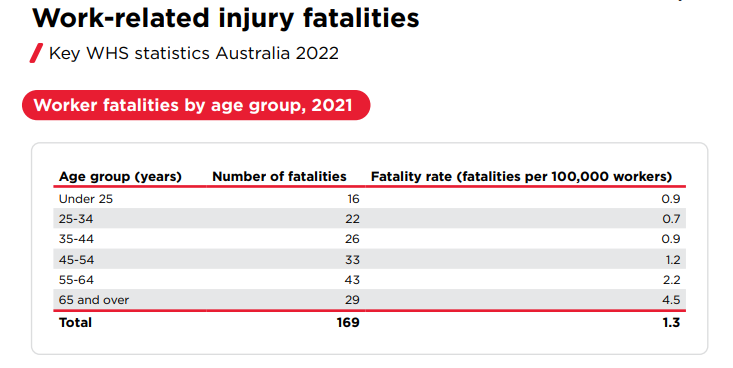 Looking at Safe Work Australia’s interactive key WHS Statistics, sadly workers over the age of 45 accounted for almost two thirds of all fatalities. Workers aged under 25 had the lowest fatality rate, closely followed by the 25-34 age group. With an overall decline in workplace fatalities, are we finally seeing a shift in safety attitudes?
Looking at Safe Work Australia’s interactive key WHS Statistics, sadly workers over the age of 45 accounted for almost two thirds of all fatalities. Workers aged under 25 had the lowest fatality rate, closely followed by the 25-34 age group. With an overall decline in workplace fatalities, are we finally seeing a shift in safety attitudes?
Safety News September 2023
September 2023
Issue 45
 Working from home, is it a double edge sword?
Working from home, is it a double edge sword?
Before the COVID-19 pandemic, remote work was being explored by some companies, but its adoption was relatively slow and limited. The pandemic forced employers to adapt to remote working conditions, and while this offers many benefits, it also comes with it’s own risks and challenges.
 You can keep fighting fatigue, until you can’t
You can keep fighting fatigue, until you can’t
“These crops won’t harvest themselves“. SafeWork Victoria has a new emotional campaign aimed at rural workers which is narrated through the eyes of a son who has lost his father. We look at the signs of fatigue and some of the industries more prone to fatigue related injuries.
 New powers for AHRC in December 2023
New powers for AHRC in December 2023
The Australian Human Right’s Commission’s (AHRC) Respect@Work report, led to major legislative reform with a shift from a complaints-based model to one where employers are required to take action. In December 2023, the AHRC will have new powers to ensure organisations and businesses meet the Positive Duty requirements.
 Inadequate sleep is costing Australia billions
Inadequate sleep is costing Australia billions
It can be difficult to fall asleep and stay asleep, which is especially true for Australia’s 100,000-plus resources workers who work fly-in fly-out rosters. Previous research has found FIFO shift workers are particularly sleep-deprived and at risk of developing sleep disorders, so ECU is investigating what can be done to improve workers’ wellbeing.
 Changes to Offences and Penalties – 2023
Changes to Offences and Penalties – 2023
Amendments have been made to the model WHS Act and model WHS Regulations, including how WHS penalty provisions are expressed, increasing penalty amounts and providing for the indexation of penalty amounts. The Model Work Health and Safety Legislation Amendment (Offences and Penalties) 2023 is now available to view on the Safe Work Australia website.
Recruitment & Contractors | Consultants | Training
 WHS Training Courses Available
WHS Training Courses Available
WHS Awareness
WHS/OHS Awareness for Managers
Safety Committee Training
Risk Management Training
Due Diligence for Officers
You can keep fighting fatigue, until you can’t
WorkSafe Victoria have released a new awareness campaign “You can keep fighting fatigue, until you can’t”, aimed at rural workers to recognise the signs of fatigue before it is too late. Continue reading
Working from home, is it a double edge sword?
Before the COVID-19 pandemic, remote work was being explored by some companies, but its adoption was relatively slow and limited. The pandemic forced employers to adapt to remote working conditions, and while this offers many benefits, it also comes with it’s own risks and challenges.
Inadequate sleep is costing Australia billions
Too hot, too cold, too loud, too bright — there are many reasons it can be difficult to fall asleep and stay asleep, which is especially true for Australia’s 100,000-plus resources workers who work fly-in fly-out rosters. Continue reading







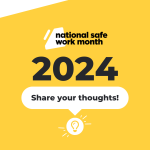

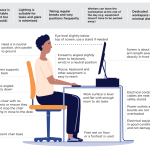



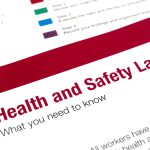
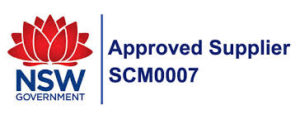 Safety Australia Group
Safety Australia Group